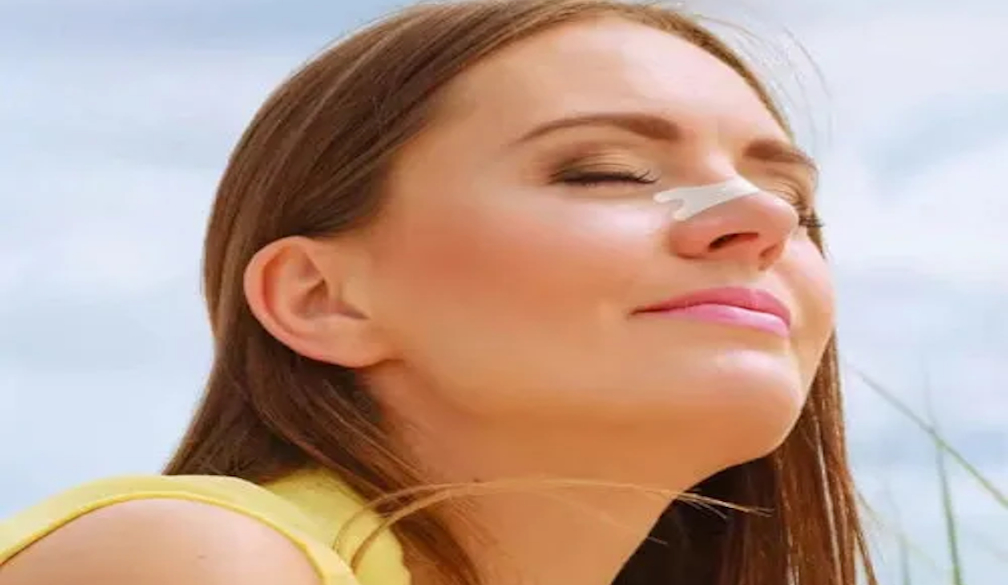How Mouth Taping and Nasal Strips Help You Sleep

Breathing Easy at Night
For those who frequently drink alcohol, you may have experienced waking up tired, with a parched mouth and a general overall feeling of exhaustion. If so, you're not alone. Millions of Americans battle night-time breathing woes that disturb sleep and undermine overall health. Yet what if a restful night in nature could be as straightforward as zipping your lips or packing your nose? Good night and let yourself sleep well!
Mouth Taping and Nasal Strips
Sleep is something many people struggle with getting enough of. So many people wake up feeling groggy daily or spend even one night tossing and turning when mouth taping and nasal strips can help make your sleep so more solid.
These sleek little tools are picking up prevalence for their ability to increase breathing at night resulting in a good night's sleep from which you do not awake feeling fatigued. What are the science and causes of these methods, and what effect can they have on making your nights more restful?
The science behind breathing while sleeping
- Breathing during sleep is a vital part of general health. When we sleep, our body has several cycles during the night, probably REM and non-REM. Every stage affects our breathing.
- When we enter deep sleep, our breath becomes slower and more rhythmic. This aids body relaxation so that you can recover from day-to-day stress. This is a natural cycle, however, that can be disrupted by nasal congestion and mouth breathing, etc.
- When compared to mouth breathing, nasal breath allows maximal oxygen exchange. The nose serves as an air filter, warming and humidifying the wind before it reaches the lungs. It helps to reduce irritants that may cause respiratory problems when you are asleep.
- On the flip side, breathing through your mouth long-term may result in a dry throat and snoring or disrupted airflow. Having clarified these dynamics, this brings up an excellent case as to why breath control makes a difference in every night of sleep.
The Advantages of Mouth Taping for Sleep
- It is a concept known as mouth taping for sleep which has gained popularity and seems to be working more effectively. It improves your breathing through the nose to ensure efficiency whenever you snore.
- Among the benefits of nasal breathing is that it can result in better oxygen exchange and less snoring. Multiple users say they wake up feeling more vitalized when implementing this habit.
- It can also reduce dry mouth symptoms. This can eventually lead to discomfort or even dental disease.
- As long as you have a favorable palate position, your jaw and teeth should naturally align — so mouth tape may reduce face and neck tension.
- Consistent use of this technique also finds that people sleep better as a whole. Improved deep sleep stages = Better, more restful nights and better mornings to wake up from hustle.
How Should Mouth Tape Be Used to Sleep?
- An effective way to enhance nocturnal breathing. Here’s how to do it properly.
- Select a quality sleeping tape, not just any skin-friendly sport/medical tape
- Before you apply the tape, make sure your lips are clean and dry to help it stick all night long.
- Smooth out your gently closed lips with a piece of horizontal tape only as much as they are covered.
4 Different Types of Nasal Strips and How They Work
- Standard adhesive nasal strips increase air flow, constricting the nostrils.
- Medicated strips with menthol or eucalyptus open and refresh the airways.
- Nasal strips block airborne pollen and dust from inhalation
- Adjustable nasal strips provide a custom fit for comfort and results
Choosing the right type can improve your sleep quality in minutes and greatly enhance your sleep overnight.
Mouth Taping and Nasal Strips For Best Sleep
But tapping your mouth and using nasal strips together will make a huge difference in improving sleep effectiveness. Using these techniques in conjunction appeals to different aspects of nighttime respiratory function.
- We need to inhale through the nose and mouth tape for sleep to support this. It prevents dry mouth and leads to improved sleep.
- This is complemented by nasal strips that physically open the nostrils. This improves airflow through your nose, which helps you to breathe during sleep.
- Both products combined are a synergetic product. This will also stop your snoring, relieving you and anyone sharing a bed or room.
Apply well in advance of bedtime: Ideally, both should be applied properly before bedtime! It may take trial and error to discover what works best for you.
Potential Risks and Precautions when Using Mouth Tape or Nasal Strips
Mouth tape and nasal strips can improve sleep but do so with caution. Consult with a healthcare professional before use if you have any known medical conditions (especially sleep or respiratory disorders).
Those with anxiety may feel panicked if they sense a tape over their mouth, and nasal strips can cause rashes on sensitive skin. Track your body's response to these products. If you are in discomfort, take a break from them for safer alternatives while getting enough healthy sleep.
Conclusion
Adequate and improved sleep is vital to your well-being. Mouth tape: Aids nasal breathing and minimizes snoring. Nasal strips: Widen blocked passages to improve airflow in the nose. Together, they can go a long way toward keeping your sleep healthy - breathing and all!

















